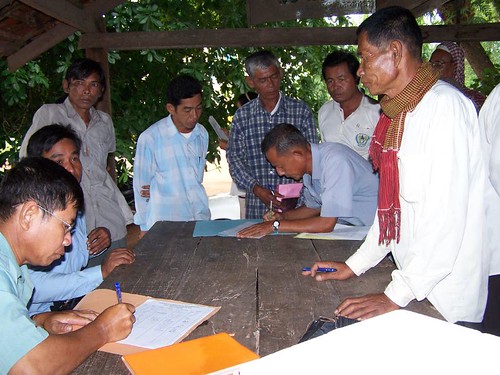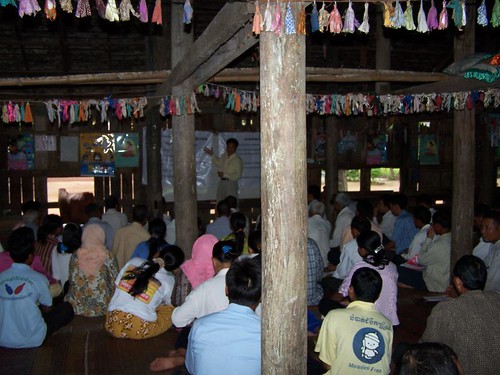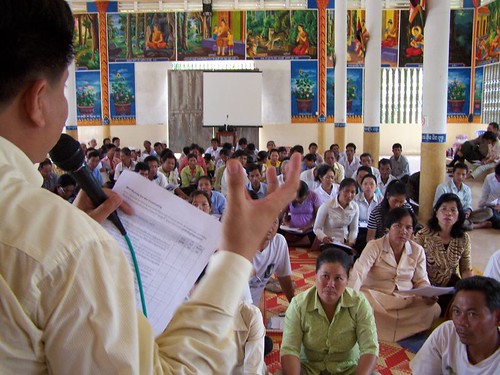It seems common sense, but it takes a policy document to implement this mindset. Imagine not knowing your basic human rights. In the health sector the patient-provider relationship inequality foments a host of problems in this area. Because patients are dependent on the provider they don’t question the diagnosis and decisions, or expect (much less demand) safe, quality care. Given their status, providers feel their judgment ought not be questioned. The cycle perpetuates unethical behaviour and promotes dangerous practices in medicine.
Cambodia is just now introducing, in two provinces in the country, the concept that people are entitled to a set of fundamental human rights when seeking health care.
Right to equality
Right to information and health education
Right to health care
Right to privacy
Right to confidentiality
Right to choice and informed consent
Right to express opinion and to participation
Generating demand is one of the approaches to improving proper, safe, quality health services. Developed countries took centuries to develop the level of competence and standards of quality in health care that they are now at. In Cambodia and other poor countries development goals aim at fast-tracking that pace.
A series of workshops were held in the communities within the catchment area of our project intervention health facilities, to disseminate information about Clients' Rights. Invited are the community leaders such as Commune Council members, Village Chiefs, Womens' Association representatives, etc. Participants register to receive their per diems, or travel allowance, to attend the workshop. 
Low-tech presentation to the community at the meeting hall of a Pagoda in Chakreyting Village. At this site we did not have electricity to conduct the presentation by projector.
At the workshop in another Pagoda in Troey Koh Village, Kampot Province, a facilitator conducts a group pre-test. The pre-test was designed as a questionnaire, but even though all participants are literate, the concept of questionnaires pose difficulty if they have never seen one. So the facilitator obtained answers by show of hands. Ideally, after the day-long workshop a post-test is also conducted to see if participant knowledge increased as a result of the presentations and discussions.
Photos courtesy H Kiss
August 22, 2007
just the basic human rights, please
Subscribe to:
Post Comments (Atom)


No comments:
Post a Comment